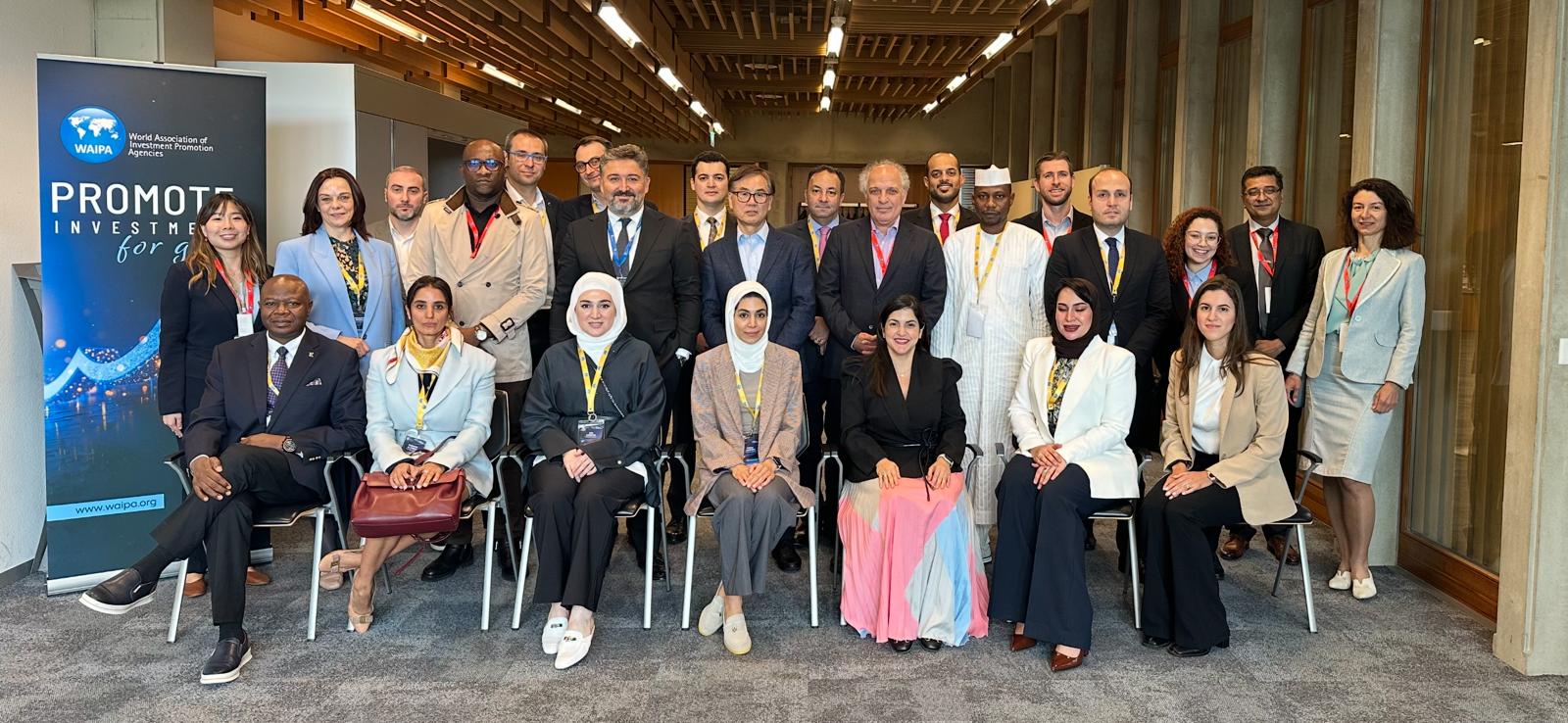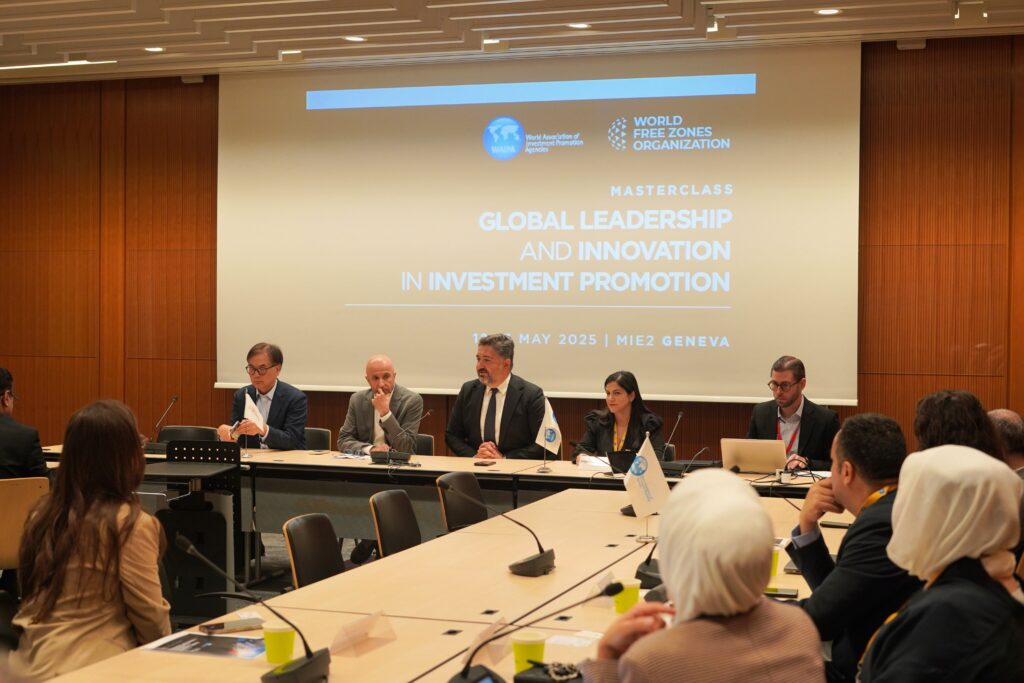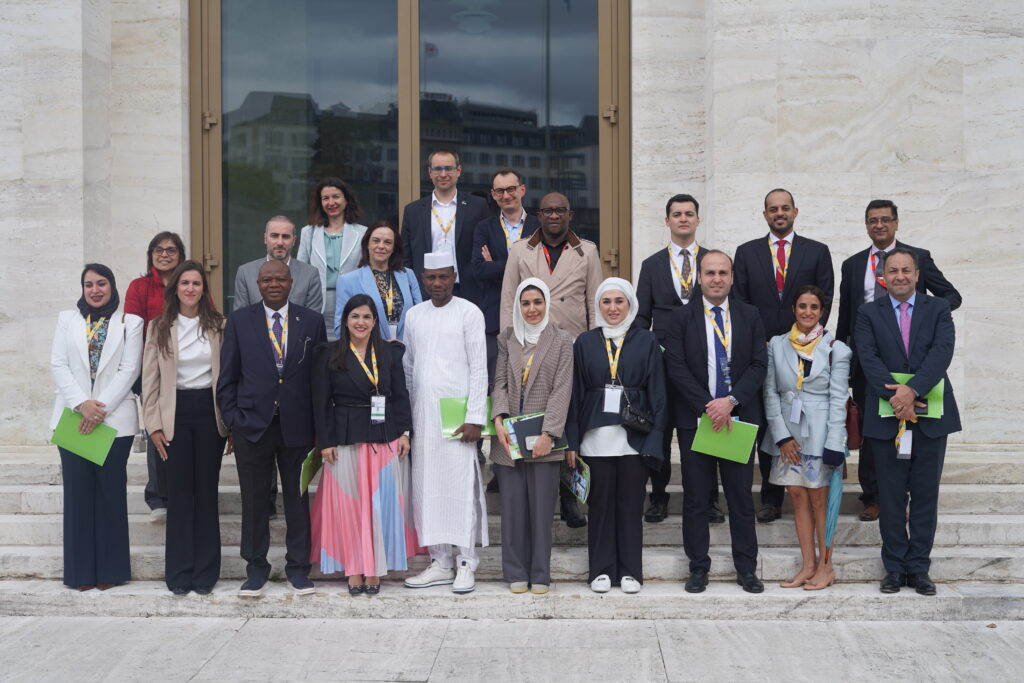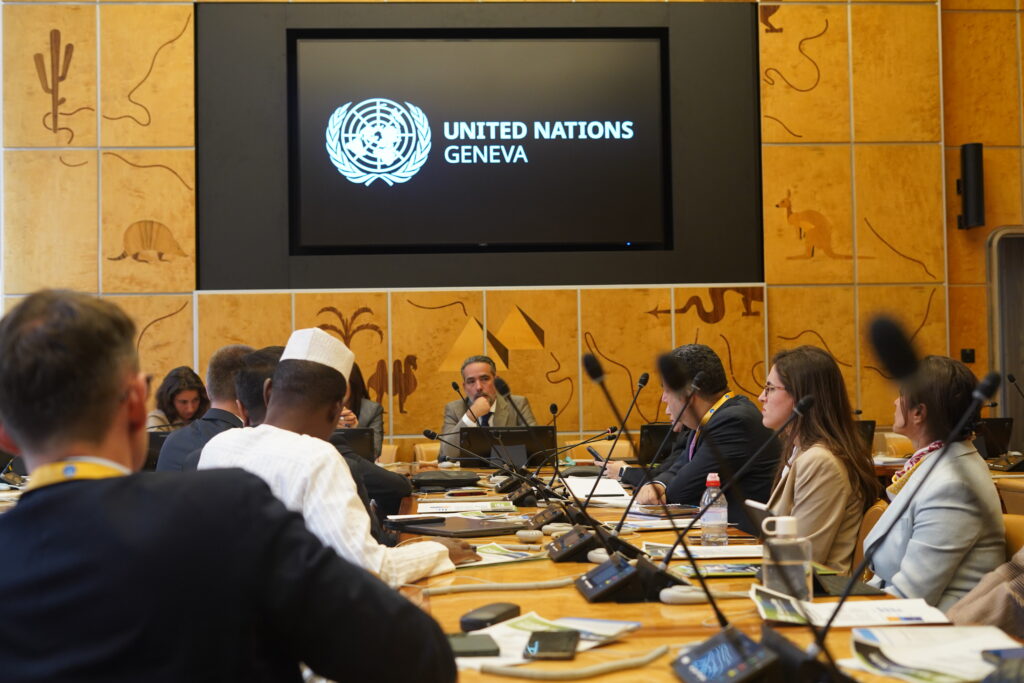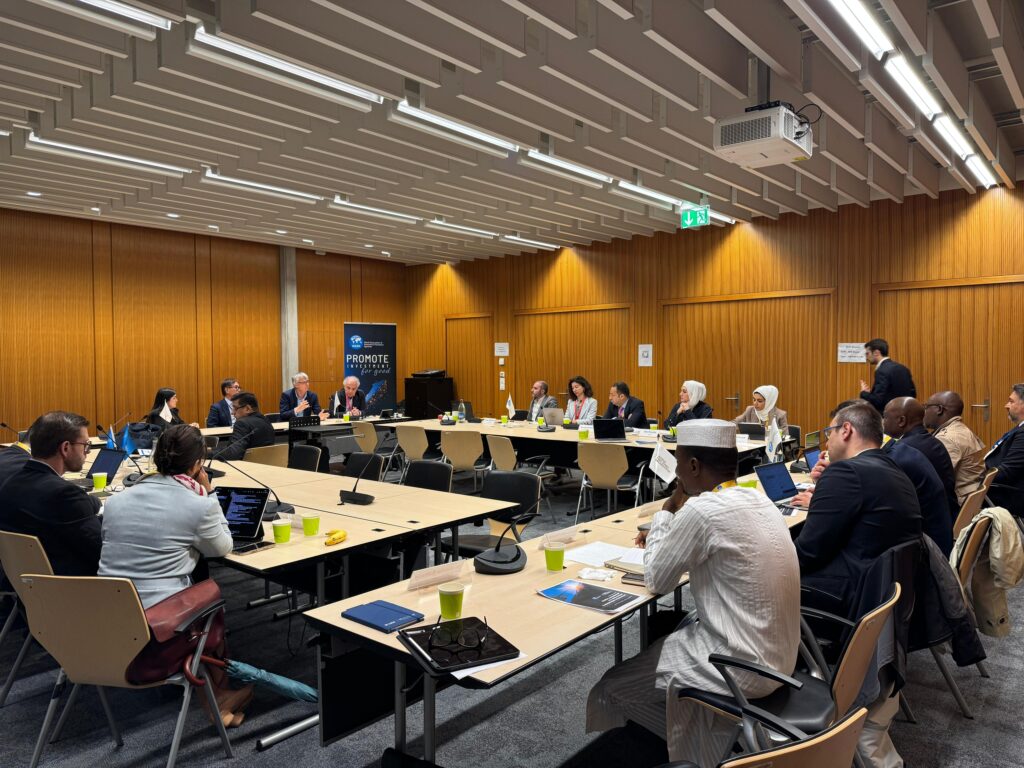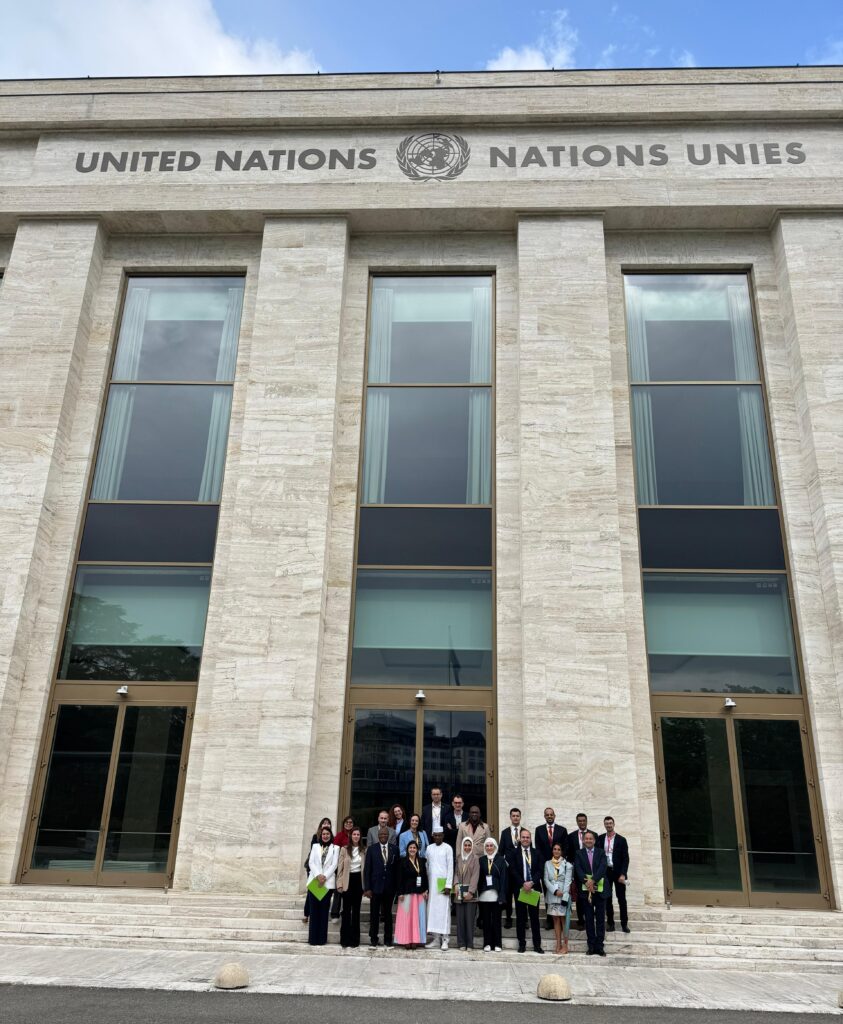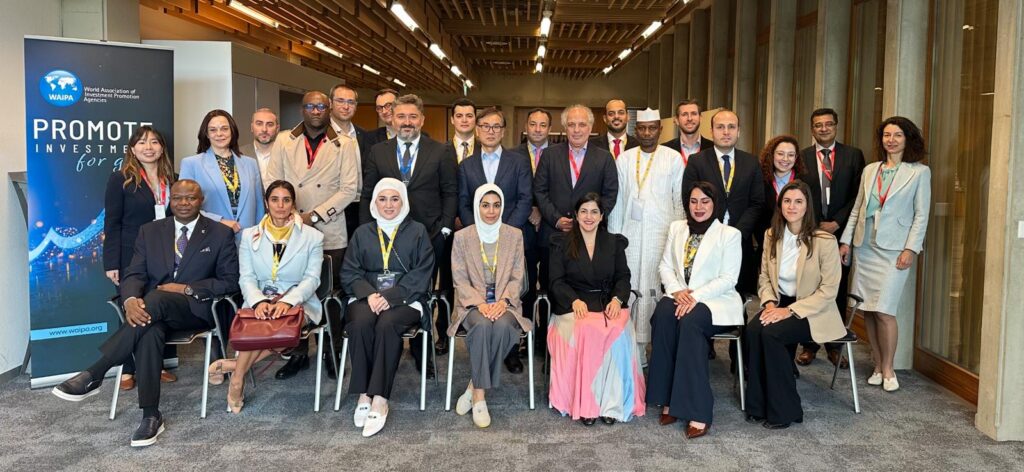The inaugural WAIPA Global Leadership & Innovation in Investment Promotion Masterclass officially launched in Geneva, bringing together a distinguished group of leaders from Investment Promotion Agencies (IPAs), Special Economic Zones (SEZs), and partner organizations such as UNCTAD, ILO, WTO, and the World Economic Forum. Hosted in collaboration with the World Free Zones Organization (World FZO), this Masterclass marks a pivotal moment in WAIPA’s mission to build a globally connected, insight-driven, and action-oriented IPA community.
A Global Collaboration in Motion
In his opening address, WAIPA Executive Director & CEO Mr. Ismail Ersahin emphasized the importance of this gathering as a leadership journey, not just a training event.
“This first edition reflects WAIPA’s demand-driven approach and our ongoing commitment to respond to members’ needs through practical, high-level platforms for dialogue, skill-building, and global visibility.”
Mr. Ersahin highlighted WAIPA’s member-driven initiatives such as SCRIPA, and the organization’s ability to translate strategic partnerships into real impact for IPAs worldwide.
Echoing the spirit of collaboration, World FZO emphasized that the current global investment environment demands more than incentives or infrastructure—it requires agility, vision, and values.
“Zones must transform into platforms for sustainable, inclusive growth. The future of trade and investment belongs to those who adapt, learn quickly, and lead with purpose,” shared Dr. Mohammed Alzarooni Chairman, Board of Directors at World FZO.
Keynote Reflections: Rethinking Investment Promotion in a Shifting Global Economy
The Masterclass officially began with a keynote by Dr. James Zhan, Chair of WAIPA’s WIC Executive Board. His address challenged participants to rethink global trends in trade and investment through a strategic lens.
Asking whether we are truly in the midst of a paradigm shift, Dr. Zhan presented the complexities of the current environment:
-
Beyond Tariffs: Trade wars now include non-tariff barriers, tech regulation, ICT taxation, and supply chain constraints.
-
Global Vulnerabilities: Chokepoints in maritime trade (Suez Canal, Taiwan Strait, etc.) threaten 60–90% of world trade.
-
New Investment Realities: Greenfield investment is in decline, and investors are shifting from scale-driven models to regionalized and clustered production ecosystems.
He urged IPAs to move from traditional promotion to ecosystem design, adapting strategies to reflect technological shifts, localized sourcing, and demand for sustainable development.
Panel on Global Value Chains: Integrated Strategies from Across the World
The morning continued with a panel discussion titled “Integrated Value Chains: IPA and SEZ Strategies for Enhancing Global Value Chains.” Speakers brought tangible examples from their countries:
-
Angelina Biviana Riveiro Disla, CEO of ProDominicana showcased a robust digital one-stop-shop platform now streamlining investor processes across 17 institutions.
-
Antti Aumo, Head of Invest Finland at Business Finland stressed the importance of asking the right questions and recognizing change as opportunity—particularly for green economy transitions.
-
Dr. Samir Hamrouni, CEO of World FZO introduced the idea of comprehensive national investment pitch packages that showcase infrastructure, labor, and incentive ecosystems in a cohesive way.
This session demonstrated how IPAs and SEZs must work collaboratively and strategically to align with their country’s development objectives while remaining globally competitive.
Afternoon Focus: Strategy, Advocacy & Aftercare
In the second half of the day, participants explored actionable strategy-building through the lens of IDA Ireland’s investment strategy framework. Topics included:
-
Multi-phase strategic planning: from analysis to mid-term review
-
Cross-ministerial engagement and alignment with national priorities
-
Investor advocacy and aftercare as tools for retention and reinvestment
-
Key Performance Indicators (KPIs) that go beyond inflows to track real development impact—jobs, local content, women/youth employment, and upskilling metrics
Participants were encouraged to view investment strategies as living documents, shaped by stakeholder feedback, macroeconomic trends, and internal coordination.
A Landmark Visit to UNCTAD: Investment for Sustainable Development
The highlight of Day 1 was the visit to UNCTAD Headquarters, located at the historic Palais des Nations. The session centered on aligning investment promotion with the SDGs, modernizing investment treaties, and preparing bankable, high-impact projects.
Key insights included:
-
IPAs as SDG Enablers: Investment promotion must support not just economic growth but social equity and environmental sustainability.
-
Rethinking Incentives: Fiscal, financial, and regulatory incentives should be evaluated by their developmental contribution, not just attractiveness.
-
Bankability Matters: Many investment projects lack readiness. IPAs must work with ministries and developers to prepare strong, focused pipelines.
-
Digital Tools: Most platforms underperform. There is a critical need for investor-friendly, transparent, and efficient online interfaces.
-
IPA Roles in Treaty Design: UNCTAD urged IPAs to become active participants in the drafting and reform of international investment agreements, safeguarding national policy space while attracting quality FDI.
What’s Next
As the Masterclass continues, participants will learn how to into attract tech and medical device investments, harnessing digital transformation, and site visits to CERN, ILO, Campus Biotech, and the World Economic Forum.


